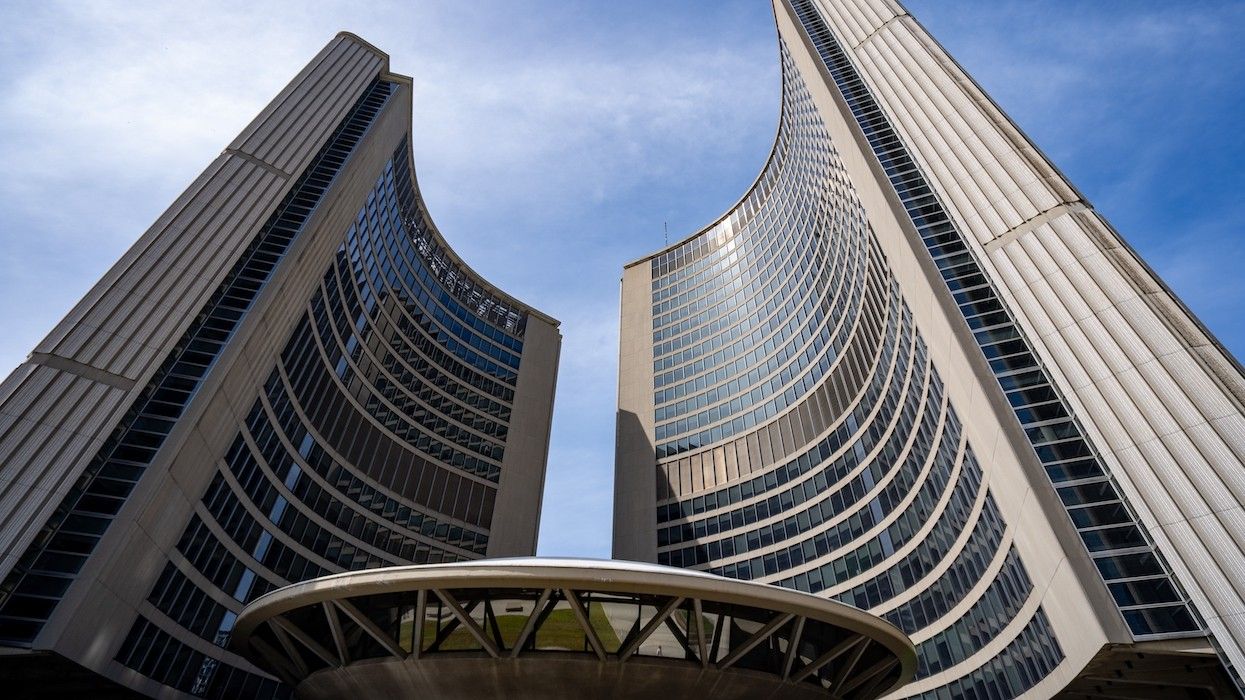This week — on Thursday, June 13, 2024 — Toronto’s Planning And Housing Committee will meet for the month, and a number of important housing items are on the docket. Of those are a CreateTO initiative that stands to bring hundreds of new rentals to the city, a zoning change permitting mid-rises as-of-right, a new take on an existing affordable rental development plan, and a standardized policy for renovictions that takes a cue from Hamilton.
All in all, these are positive things on the housing front in Toronto, and here are the items in more detail.
CreateTO Project On Eglinton Avenue
Earlier this year, CreateTO put plans in motion for a 31-storey condominium building — plus, 19- and 41-storey co-op buildings — at 2444 Eglinton Avenue East. The City-led development comes from Civic Developments, Windmill Developments, and Co-operative Housing Federation, and stands to bring a total of 918 homes to the area. That figure includes 612 rent-geared-to-income, affordable, and market rent controlled co-operative housing units. Rents for the rent-geared-to-income units will be set between 40% and 100% of the average market rent, the City says. In addition, the units will range in size from studios to three-bedrooms, providing options for a variety of households.
"This will be the largest co-operative housing development in Ontario to date and will serve as a roadmap to help guide future developments, because we need more housing and everyone at the table to deliver it," said Toronto Mayor Olivia Chow when the project was announced in January.
As-Of-Right Zoning For Mid-Rises
To enable more housing in neighbourhoods, city staff is proposing a bylaw that would permit mid-rise buildings as of right along major avenues. “Mid-rise buildings have heights generally no greater than the width of the right-of-way that the building fronts onto, up to 11 storeys,” a May 27 report from Chief Planner and Executive Director Kerri Voumvakis says.
If approved, this move would, in part, help to “support the creation of more housing as part of the ‘Housing Action Plan’ to achieve or exceed the provincial housing target of 285,000 new homes over the next 10 years.”
This particular mid-rise movement has been in work since 2010, when City Council approved a staff report: ‘Avenues and Mid-Rise Buildings Study and Action Plan.’ Since that time, actions on the as-of-right front have moved forward progressively.
Overhaul Of ‘Open Door’ Affordable Rental Program
What is presently known as the ‘Open Door Affordable Rental Housing’ program is up for an overhaul this week. In addition to the 2016 program being rebranded to the ‘Rental Housing Supply Program,’ it is proposed to be expanded to align with the City’s updated goal to bring 65,000 new rent-controlled homes to Toronto by 2023.
With the rebrand will come a new framework “for prioritizing and recommending capital funding for affordable and RGI rental homes, up to a maximum of $260,000 per unit.” It also “introduces a proposed program definition of rent-controlled homes where rent levels are higher than income-based affordable rents and at or below 150% of the average City of Toronto rent, by unit type, as reported annually by CMHC.”
In addition, a report that will go to city staff on Thursday proposes incentives for non-profit housing providers.
Hamilton-Inspired Renoviction Policy
In January 2024, Hamilton became the first Ontario city to adopt a renoviction bylaw, which is designed to deter landlords from bad faith evictions. Now, Toronto is looking to follow Hamilton’s lead. It comes into effect on January 1, 2025.
A report that will be considered by Toronto City Council — if it gets the go-ahead from the Planning and Housing Committee, that is — describes a “growing trend of renovictions in Toronto, where a landlord illegitimately evicts a tenant by alleging that vacant possession of a rental unit is needed to undertake renovations or repairs.”
If Toronto is to take a cue from Hamilton, landlords will have to show proof that they are indeed renovating their property by providing a formal notice for demolition, repair or renovation purposes, landlords must apply for a renovation licence from the city. At this time, Toronto city staff are requesting a “dedicated staff team” to “work with senior staff across relevant City divisions to develop a renoviction by-law and its operational framework by the fourth quarter of 2024.”





















